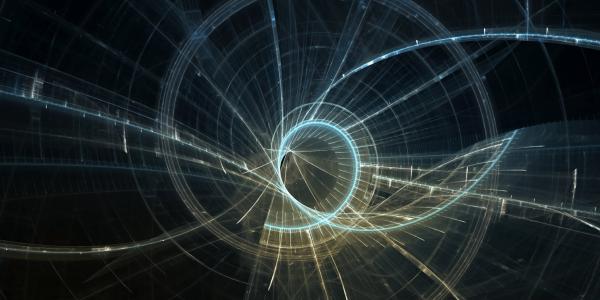This fall, the Saturday Morning Physics lecture series will continue, beginning Oct. 22 and running through Nov. 19. These lectures, which are free and open to the public, will be presented by faculty members of the Department of Physics and are tailored for people who are pretty sure the last time they thought about physics was in high school. The theme will center on quantum physics.
“Quantum physics can be at once confusing and profound,” says Michael Ogilvie, a professor of physics and the organizer of the series. “The quantum revolution did more than add to our knowledge of the physical world. It changed fundamentally how scientists and philosophers view the world, and continues to drive change in all of our technologies. We are very lucky to have several speakers who will include some of their own research.”
Ogilvie will open the series on Oct. 22 by looking at the history of the field, examining early experiments that could not be explained by classical physics in “Unsung Heroes of Quantum Physics.” From there, Ogilvie says, “Professors Kater Murch and Mark Alford will examine two fundamental issues, the arrow of time and the Einstein-Podolsky-Rosen paradox. Professors Carl Bender and Alexander Seidel will discuss the application of quantum physics to black holes and superconductors.”
Check out the full schedule of talks on the Department of Physics website. The timing of these lectures, in late October, is not lost on Ogilvie. He says, “I think it’s fun to talk about the strange and spooky aspects of quantum physics around Halloween.”
“My colleagues and I want people to understand that modern physics can be both exciting and approachable, regardless of one’s background in science,” says Ogilvie. “The connection between fundamental questions and the modern technologies of today and tomorrow is something I really can’t stress enough.”





